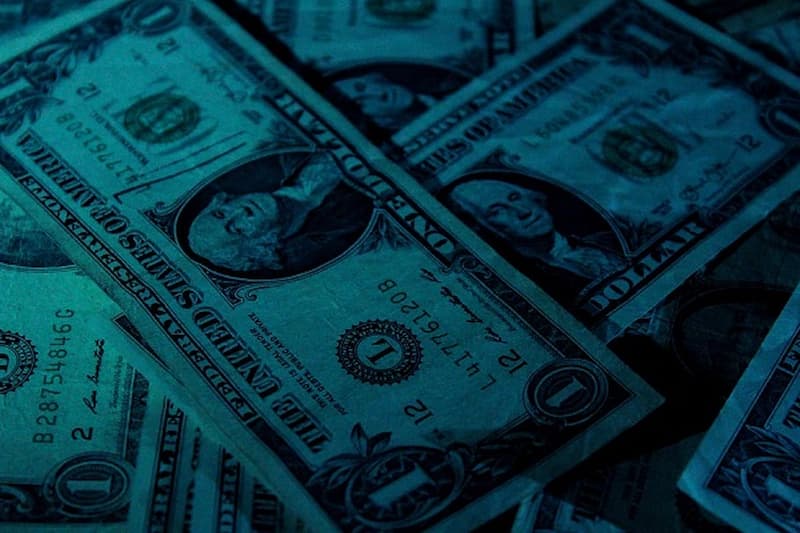(Gary Marshall) One of the big arguments against government borrowing comes from James Buchanan, winner of the Nobel Prize in economics in 1986. In his book Public Principles of Public Debt, he argued against government borrowing because he claimed that the public enjoys the benefits of public expenditures while the debts incurred pass along to future generations for settlement. Buchanan surmised that if residents endure no consequences for funds borrowed and spent, little constraint exists to dampen the fiery spending aspirations of government bureaucrats and leaders. It would not be very different from a person indulging every consumptive whim while handing the bill to distant progeny.
Related Visualizing The Snowball Of Government Debt
by Gary Marshall, January 9th, 2022
Are there no simultaneously deleterious consequences for indulging unrestrained squander by government? And if not, why has the absence of such pain not liberated government from all limitations against spending as freely and recklessly as it pleases?
When government undertakes a public expenditure, taxes are imposed upon the populace. Those taxed feel the taxes’ deleterious and stifling effects. Money is collected, in an uneven fashion due to disparities in incomes, asset and property holdings, and consumption, from a multitude of fines or penalties imposed upon the residents of a community. Some shall pay more than the average, others less. Some bear a heavy burden, and others none at all. But the individual contributions do sire a collective pain that serves to limit public spending.
If public expenditures yield a return, though distributed unevenly, it is compensation for the pain inflicted. If no return, then all suffer a double pain: one from taxation and one from the failed expenditure, some suffering more than others.
If a firm or individual funds a promising venture internally, with its own capital, similar in means to a public outlay funded by taxes, any loss is inflicted directly on the company’s shares and shareholders or on the individual’s net worth. If a success, then the firm or individual is rewarded with gains. If a firm or individual instead borrows funds, a failed venture inflicts a similar loss on shareholders, reducing share prices, or on the individual’s net worth. Hopefully, both individual and firm can weather the financial hit.
In both instances, whether funds are garnered internally or through loans, the pain strikes the firm’s or individual’s net worth. In public endeavors, we know that the populace suffers a double–financial hit when taxed funds fail to yield a return for some public endeavor. But do borrowed funds inflict similar pain?
David Ricardo, an economist having died 200 years ago, imagined that pain of a failed public expenditure funded by public loans is inflicted on those in the present because one would immediately alter or discount the value of his assets and net worth to reflect the failure, in the way that the shareholders of a private firm or an individual does. But in absence of a sinking fund established to offset or settle debt and to which all must contribute their measured share, one would have to question such a belief.
Others have made attempts to explain away the lack of consequence without much success.
Certain European states share a common currency. One euro note in Germany is the same as one euro note in Greece. However, the purchasing power of the note differs among Europe’s member nations, as do respective market interest rates. When Greece borrowed extensively in the ’90s and 2000s for needless public expenditures, its public borrowing rates eventually reflected the reprehensible squander. One found large disparities in interest rates throughout the Eurozone, Greece having among the highest and Germany the lowest. So there is pain for reckless public expenditure.
However, after the financial crash of 2008, the European Central Bank, the ECB, stepped in and started buying up a profusion of debt issued by the worst offending governments, partially absolving them of reckless malfeasance. Yet a great variety of public borrowing rates among Euro nation governments persist, regardless of subsidization of recklessly spending nations by more wisely governed neighbors.![]()
Nations possessed of their own sovereign currencies can avoid the necessity of an external benefactor with the assistance of their own respective central banks. The U.S. government has been actively issuing public debt for the last fourteen years, and the Federal Reserve has been actively buying it.
Is there pain for failed public expenditures for their contemporaries? The answer is, assuredly yes.
Let us say we have an economy of 100 units with a certain stock of money circulating. Ten percent of the economy, or 10 units, is dedicated to the public sector, and the rest, 90 units, to the private sector. Suppose the government wishes to increase its share of the economy to 20 units, or 20%, by funding a project engaging labor, material, and equipment to dig holes in the morning and fill them in the afternoon, an overtly worthless endeavor for the scarce resources devoured.
If funds are taxed, money leaves the bank accounts of resident citizens, and the government’s share of the economy, by bidding resources away from productive use, rises to 20 units, of which 10 now go to waste. The productive economy drops from 100 to 90 units amid an unchanged stock of money. As the same amount of money chases fewer goods, prices must rise, or inflate, leaving the community’s residents poorer.
If borrowed directly from resident citizens, the same result occurs with one added feature. Prices again inflate as government bids away resources and the productive economy drops from 100 to 90 units amid an unchanged stock of money. However, a liability is added: the bond or public debt claimed against the assets of resident citizens, as well as an equivalent asset: the bond held by resident citizens. As the liability and equivalent asset sum to zero, they may be ignored.
In both instances, the same result occurs. Whether funds are taxed or borrowed from resident citizens, prices inflate after the squandering of scarce resources.
If the U.S. Government had dropped off bonds at the Federal Reserve, then a double-hit of inflation occurs. Through Fed balance sheet operations, an asset, the loan made by the Fed, and a liability, funds added to the U.S. government’s account, are created. Crediting the U.S. government’s account adds to the stock of money. When the U.S. government spends, the money circulates. We then have an increased stock of money amid diminished production, the method of the last two years, which doubles the rate of inflation.
Buchanan’s claim of a lack of pain inflicted on the present generation for reckless malfeasance is clearly wrong. As he admits, inflation is a tax. The inflation caused by wasteful public expenditures imposes a profoundly malicious effect upon the community, greatly impoverishing its people, especially savers and pensioners. The virulent effects extend to bondholders: their financial assets deteriorate in value as inflation corrodes their returns. If the Federal Reserve involves itself, all are hit doubly hard, creating a much poorer society.
Buchanan is right that those taxed are hit with a double-pain: the pain of taxation and the pain of wasteful public expenditure, whereas the borrowers of today are struck with only a single pain: wasteful public expenditure, the second pain of taxation being transferred to future generations. If one can erase the pain derived from raising funds for government use while retaining the pain for wasteful public expenditures, then the world shall be a much better place. Hopefully, an enlightened path shall bring us such a glorious outcome.
Save 10% and get free shipping with a subscription!Fight viruses, remove heavy metals and microplastics, and restore your gut all at once with
Humic and Fulvic Acid from Ascent Nutrition.
MUST HAVE DETOX POWERHOUSE!
Stillness in the Storm Editor: Why did we post this?
The news is important to all people because it is where we come to know new things about the world, which leads to the development of more life goals that lead to life wisdom. The news also serves as a social connection tool, as we tend to relate to those who know about and believe the things we do. With the power of an open truth-seeking mind in hand, the individual can grow wise and the collective can prosper.
– Justin
Not sure how to make sense of this? Want to learn how to discern like a pro? Read this essential guide to discernment, analysis of claims, and understanding the truth in a world of deception: 4 Key Steps of Discernment – Advanced Truth-Seeking Tools.
Stillness in the Storm Editor’s note: Did you find a spelling error or grammatical mistake? Send an email to [email protected], with the error and suggested correction, along with the headline and url. Do you think this article needs an update? Or do you just have some feedback? Send us an email at [email protected]. Thank you for reading.
Source:
https://www.americanthinker.com/articles/2022/01/the_pain_of_public_debt.html
Support our work! (Avoid Big Tech PayPal and Patreon)DIRECT DONATION


Leave a Reply